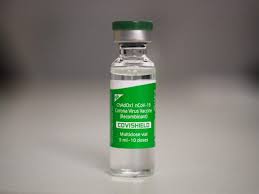Saturday – If you’ve been experiencing unexplainable mood swings or persistent feelings of depression, the culprit could be a deficiency in Vitamin B12, according to medical experts. Known scientifically as cobalamin, Vitamin B12 plays a crucial role in brain health, influencing the production of brain chemicals that affect mood and other cognitive functions.
“Vitamin B-12 and other B vitamins play a crucial role in producing brain chemicals that affect mood and other brain functions. Low levels of B-12, as well as other B vitamins like vitamin B-6 and folate, may be linked to depression,” said Dr. Anshu Rohtagi, Senior Consultant in the Department of Neurology at Sir Ganga Ram Hospital.
Vitamin B12 is essential for various bodily functions, including the formation of red blood cells, cell metabolism, nerve function, and DNA production. A deficiency in this vital nutrient can manifest in several ways, including strange sensations, numbness or tingling in the extremities, balance problems, anemia, cognitive difficulties, memory loss, and general fatigue.
“The deficiencies can result from poor diet or difficulties in absorbing the vitamins consumed. So, maintaining adequate B-12 levels is essential for overall well-being, including mood regulation,” Dr. Rohtagi added.
Vitamin B12 is predominantly found in animal products such as poultry, meat, fish, and dairy. It is also available as an oral supplement, injection, or nasal spray. Individuals following vegetarian or vegan diets are at higher risk of deficiency since plant foods do not contain Vitamin B12. Similarly, the elderly and those with certain digestive conditions may struggle with B12 absorption.
“Vitamin B12 plays a crucial role in producing brain chemicals like serotonin, which helps regulate mood. When B12 levels dip, these chemicals can become imbalanced, potentially leading to symptoms like mood swings, irritability, and even depression,” noted Dr. Guruprasad Hosurkar, Additional Director of Neurology at Fortis Hospital, Bannerghatta Road, Bengaluru. He emphasized that this connection affects both men and women equally.
Research suggests a correlation between low B12 levels and depression, with some studies showing mood improvements following B12 supplementation. However, mood disorders can stem from various causes, and a proper medical evaluation is necessary to identify Vitamin B12 deficiency as the underlying issue.
Dr. Sudhir Kumar from Indraprastha Apollo Hospitals in Hyderabad highlighted the neurological symptoms of Vitamin B12 deficiency, stating, “Vitamin B12 deficiency causes several neurological symptoms such as tingling, numbness & burning of feet, imbalance, memory impairment, mood disorders, psychosis, seizures, and Parkinsonism.” He urged early diagnosis and treatment to swiftly alleviate these symptoms.
In addition to ensuring adequate Vitamin B12 intake, doctors advise maintaining a healthy lifestyle. This includes managing high blood pressure and blood sugar, quitting smoking and alcohol, staying physically active, getting sufficient sleep, and managing stress effectively.
If you suspect a Vitamin B12 deficiency or are experiencing unexplainable mood disorders, consulting with a healthcare professional for appropriate testing and treatment is crucial. Addressing this deficiency can significantly improve both mood and overall health.











